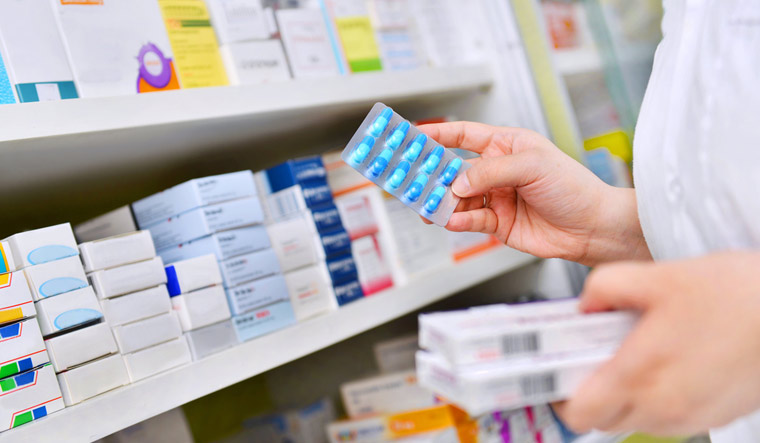Non-COVID drugs are back with a bang in the growth story of the Indian pharma market. There was recovery in volumes of non-COVID-19 drugs and it has helped push the growth of the Indian pharma market by around 18 per cent in August 2021. The growth was driven by a volume bounce-back and recovery in sales of non-COVID-19 drugs. As per a report by Anand Rathi, the non-COVID-19 drug range that makes up around 63 per cent of the overall pharma market, has now started growing in double figures while the COVID-19 drug portfolio still continues to grow faster. At the same time, there was price hike as well as new drug launches that added to the growth.
The Anand Rathi report points out that, in August, acute therapy sales grew at a strong 24.5 per cent, while the chronic and sub-chronic therapies grew 10.1 per cent and 14.7 per cent respectively. The growth in the select chronic drug companies was much better with Sun pharma registering 20.9 per cent growth, Torrent 22.5 per cent, Ipca 38.5 per cent and Ajanta 31.7 per cent. Acute therapy companies also performed well in August 2021, with the pharma major Alkem's sales growing at 21.2 per cent, Dr Reddy’s at 26.4 per cent, Indoco 33 per cent and FDC at 33.6 per cent. However, there were exceptions too, with the sales of the drug company Glenmark was down by 17 per cent and Natco had a 30.8 decline in August 2021.
Interestingly, as per the report, the sales of acute therapy products had borne the maximum brunt of the COVID-19 pandemic. While growth in the initial months of FY22 was driven by COVID-19 drugs, non-COVID-19 drugs too have now started growing faster. Anti-infective therapies also grew. Similarly, pain management drugs which had not seen any major benefit of COVID-19 but have still grown. In August 2021, the sales of cardiac products grew at 6.3 per cent and anti-diabetes drugs at 8.6 per cent. Vitamins that had benefited from the COVID-19 outbreak, are now seeing moderation in growth.
The report also observes that performance of the MNCs improved in the India pharma market from July 2021. In August, Glaxo grew at 18.6 per cent and the Abbott group at 14.6 per cent grew in double digits, while the growth of Sanofi and Pfizer is also catching up. Experts at Anand Rathi point out that the Indian pharma market is expected to grow in double digits in line with its past average. In the near term, recovery in volumes and higher acute therapy is expected to boost the pharma market. It is expected that in the long term though, factors such as greater availability of medicines and healthcare facilities would be crucial for drug companies and chronic therapies would outstrip acute therapies in the long run as emerging lifestyle diseases boost demand for chronic drugs. The sector continues to see average price hikes of around 5 to 6 per cent while new drug launches will contribute significantly to the pharma growth.
As per another research report by Motilal Oswal on the Indian pharma sector with the ease of access to capital for emerging pharma companies, there is a surge in bio-pharma companies focusing on R&D and outsourcing manufacturing at the research and commercial level. Along with cost-consciousness of larger pharma companies, it is also providing a major push to the segment. Indian CRAMS (Contract Research and Manufacturing Services) players are uniquely positioned to outperform the industry in this segment. The Motilal report also points out that a gradual recovery in domestic formulations, excluding COVID-19 related therapies, had shown growth after exhibiting a downtrend in growth mainly due to a spike in consumption of COVID-19-related medicines. The enhanced usage of digital tools has also started transforming marketing in the domestic formulations segment.
As per the Motilal Oswal report, the product launch pace in the sector was with anti-infectives, cardiac, anti-diabetic drugs witnessing the highest number of launches over the past one year. Motilal Oswal analysts believe that while the COVID related off take is subsiding with lower cases, it is expected that core therapies will revive gradually going forward.





